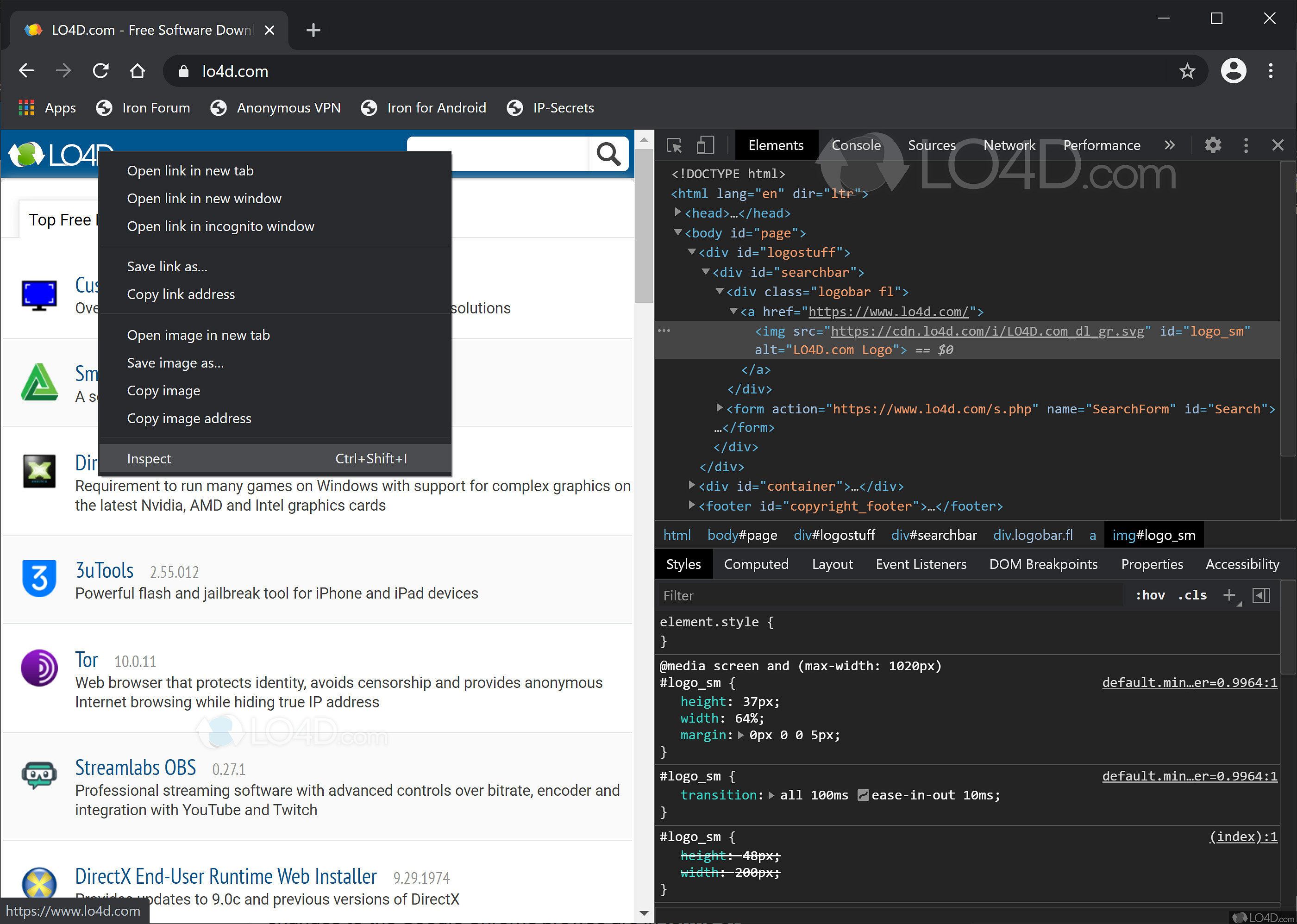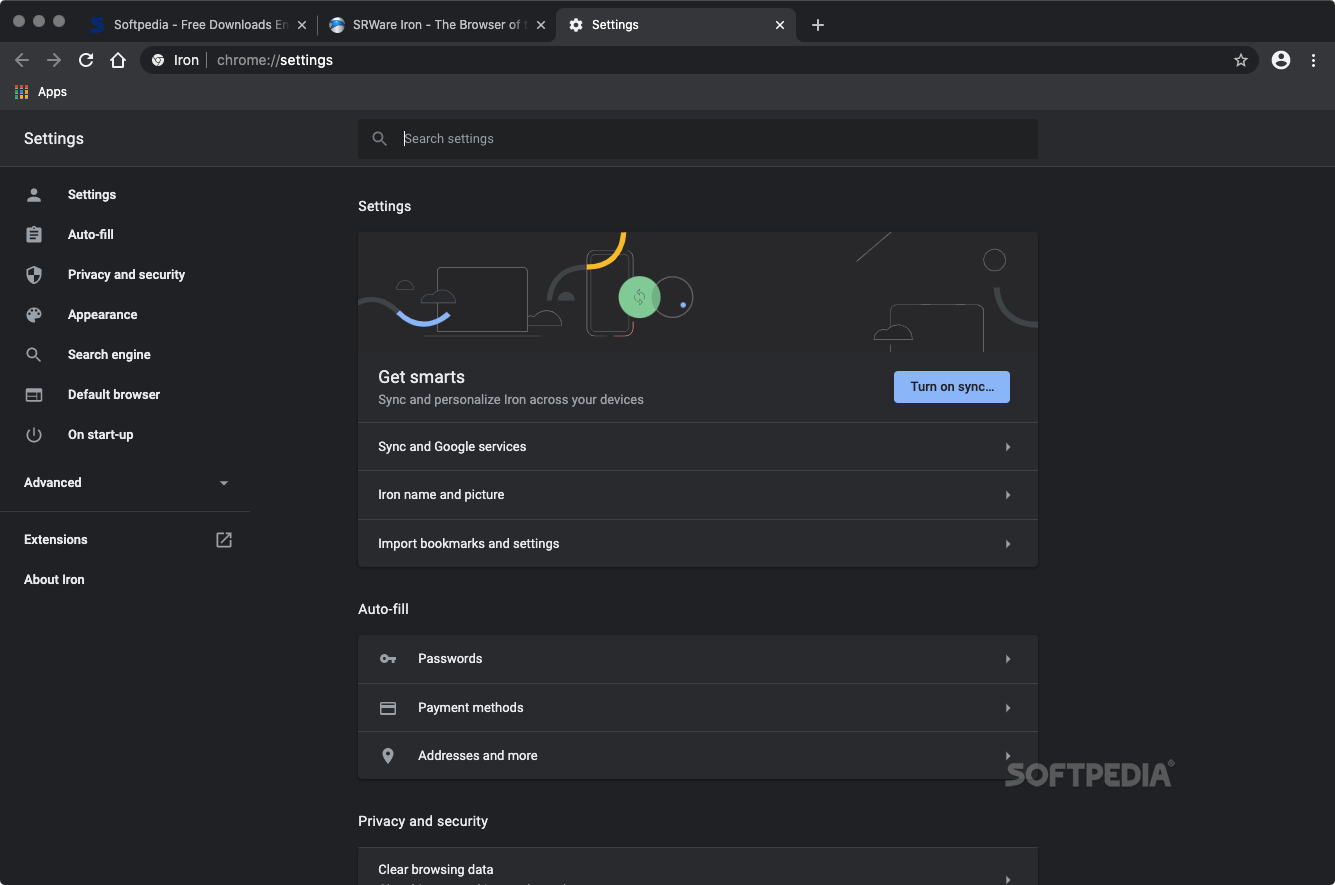


That's not necessarily a bad thing since many users may prefer to delete such data securely. The program installed conventionally and left user data behind in its program folder when we uninstalled it. We saw no functionality issues that seemed to be due to Iron's breaking the umbilical cord to Google HQ, or any functionality issue at all, for that matter. We browsed to some Web sites, which loaded as fast as with other Chromium-based browsers, which is to say about as fast as browsers get nowadays.

We could import or export our bookmarks, create application shortcuts, and manage search engines, to name a few. Of course, we could customize the view, including the Quick Access links, using the usual Chrome-style options. Iron's start page offers quick Web and Image searching and a Quick Access section that let us upload pictures, access Chrome-compatible extensions and themes, rate our home page at a ratings site, view info about our IP address, and even watch funny videos at Epic Fail. What sets it apart is a lack of the Google-centric features that some have criticized for violating users' privacy, such as reporting your browsing habits and suggesting content (and advertising) based on the results. Like Chrome and the others, Iron is super-fast and accepts extensions, themes, and developer tools. It's based on Google's Chromium core, which is the basis of many browsers, including Google's own Chrome.

It's designed for Microsoft Windows (Win32) operating systems. K-Meleon is a lightweight, customizable, open-source web browser.


 0 kommentar(er)
0 kommentar(er)
